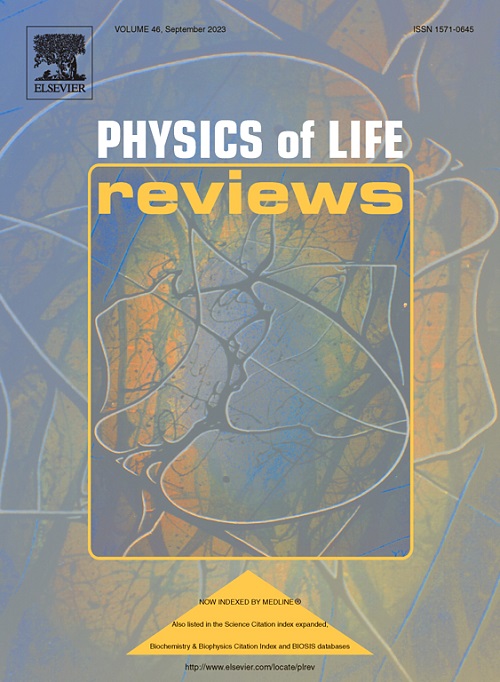Active inference and cognitive control: Balancing deliberation and habits through precision optimization
IF 14.3
1区 生物学
Q1 BIOLOGY
引用次数: 0
Abstract
We advance a novel formulation of cognitive control within the active inference framework. The theory proposes that cognitive control amounts to optimising a precision parameter, which acts as a control signal and balances the contributions of deliberative and habitual components of action selection. To illustrate the theory, we simulate a driving scenario in which the driver follows a well-known route, but encounters unexpected challenges. Our simulations show that a standard active inference model can form adaptive habits; i.e., can pass from deliberative to habitual control when the context is stable, but generally fails to revert to deliberative control, when the context changes. To address this failure of context-sensitivity, we introduce a novel type of hierarchical active inference, in which a lower level is responsible for behavioural control and the higher (or meta-cognitive) level observes the belief updating of the lower level below and is responsible for cognitive control. Crucially, the meta-cognitive level can both form habits and suspend them, by controlling the (precision) parameter that prioritizes deliberative choices at the behavioural level. Furthermore, we show that several processes linked to cognitive control — such as surprise detection, cognitive conflict monitoring, control signal regulation and specification, the simulation of future outcomes and the assessment of the costs of control and mental effort — stem coherently from the free energy minimization scheme that underpins active inference. Finally, we discuss the putative neurobiology of cognitive control by simulating brain dynamics in the mesolimbic and mesocortical pathways of the dopamine system, the dorsal anterior cingulate cortex and the locus coeruleus.
主动推理与认知控制:通过精确优化平衡深思与习惯
我们在主动推理框架内提出了一种新的认知控制公式。该理论提出,认知控制相当于优化一个精确参数,该参数作为控制信号,平衡行动选择中深思熟虑和习惯成分的贡献。为了说明这一理论,我们模拟了一个驾驶场景,在这个场景中,司机沿着一条众所周知的路线行驶,但遇到了意想不到的挑战。仿真结果表明,标准的主动推理模型可以形成自适应习惯;即,当语境稳定时,可以从协商控制过渡到习惯控制,但当语境发生变化时,通常不能恢复到协商控制。为了解决这种上下文敏感性的失败,我们引入了一种新型的分层主动推理,其中较低的层次负责行为控制,较高的(或元认知)层次观察较低层次的信念更新并负责认知控制。至关重要的是,元认知层面既可以形成习惯,也可以暂停习惯,通过控制(精度)参数,优先考虑行为层面的审慎选择。此外,我们还表明,与认知控制相关的几个过程——如惊喜检测、认知冲突监测、控制信号调节和规范、未来结果的模拟以及控制和心理努力成本的评估——都源于支撑主动推理的自由能量最小化方案。最后,我们通过模拟多巴胺系统、背前扣带皮层和蓝斑的中脑边缘和中脑皮层通路的大脑动力学,讨论了认知控制的假定神经生物学。
本文章由计算机程序翻译,如有差异,请以英文原文为准。
求助全文
约1分钟内获得全文
求助全文
来源期刊

Physics of Life Reviews
生物-生物物理
CiteScore
20.30
自引率
14.50%
发文量
52
审稿时长
8 days
期刊介绍:
Physics of Life Reviews, published quarterly, is an international journal dedicated to review articles on the physics of living systems, complex phenomena in biological systems, and related fields including artificial life, robotics, mathematical bio-semiotics, and artificial intelligent systems. Serving as a unifying force across disciplines, the journal explores living systems comprehensively—from molecules to populations, genetics to mind, and artificial systems modeling these phenomena. Inviting reviews from actively engaged researchers, the journal seeks broad, critical, and accessible contributions that address recent progress and sometimes controversial accounts in the field.
 求助内容:
求助内容: 应助结果提醒方式:
应助结果提醒方式:


